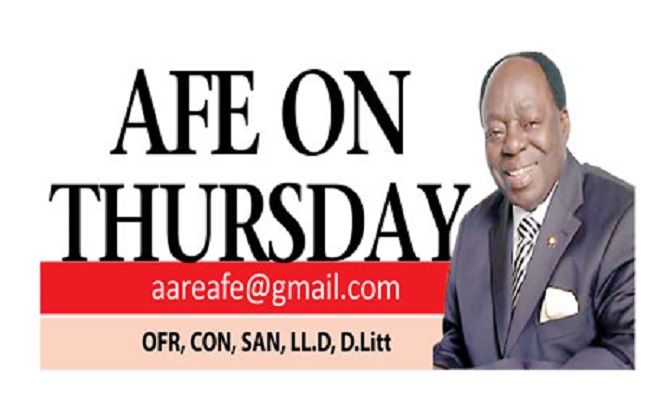Principle 3: Single six-year tenures for the office of the president and governors
TRANSFORMATIONAL leadership requires continuity and stability in governance. Many of the most progressive governments in the world have enjoyed continuity and stability in leadership which allows office holders to consolidate and implement development programs without frequent policy reversals that are associated with frequent change of government or leadership. Singapore, Qatar, Malaysia are good examples of how good, coherent and sustained governance can transform a nation from ordinary, to extraordinary and a global commercial hub in no distant future.
I am of the view that a single six-year term for political office holders should be introduced in Nigeria. A single six-year tenure can enable our leaders to focus on the task of governing rather than spending all the time preparing for the next election. The Constitution of the Federal Republic of Nigeria 1999 (as Amended) limits the period which any individual can serve as President of the Federal Republic of Nigeria to two terms of 4years each.This provision should be amended. It is not in dispute that recent elections at the State and Federal levels generated immense interest and palpable tension in the Country and consumed unimaginable amount of Naira and Dollar. Many Governors right from the date of their swearing-in began planning for their re-election. As the period for selection of candidates by political parties as stipulated by the Electoral Act drew nearer activities in several states came to a halt as many state functionaries including commissioners and ministers at the Federal level became engrossed with issues pertaining to the elections. Members of the National Assembly were at a point all busy in their respective constituencies scheming to retain the tickets of their parties forgetting their Constitutional duties of law making. The result is that important matters which require attention are always left unattended to.
Principle 4: Streamlined qualification and remuneration for political officer holders
Transformational leaders are competent, qualified and possess the greatest sense of humility, responsibility and absolute commitment to service. Nigeria deserves the best and brightest minds in positions of leadership. Leadership is not a place of retirement for men and women of yesterday to retire. Rather it requires full energy, dedication and passion by active men and women with alert mind and sound health. Leadership is a privilege and responsibility, and should never be seen as a platform for self-reward.
Principle 5: Need for clear party ideology
Elections in Nigeria are largely organized and decided by party affiliations. However, several of the political parties in Nigeria are non-ideological and serve a diversity of incoherent interests that often change like weather. No human association can survive without an ideology. A political party without a clear-cut ideology is just a loose union of people with no common purpose and can push democracy towards dangerous political instability.
A party’s ideology is like its identity, it defines what the party stands for, including its past, present and in the future plans, the type of members it attracts, its approach to governance and its plans for the electorate irrespective of who is in power. Clear and homogenous party ideology provides continuity in governance as whoever is elected from that party will be pursuing the same programs and ideologies that the party stands for. The good old days in Nigerian were times in which we had strong party cultures and ideologies in the Action Group and in the strong and formidable parties at the time.
Lack of clear political ideology explains why politicians in Nigeria move from one party to another depending on prevailing self-interest, and are sadly easily admitted and absorbed by whichever party they are running to. For example, it will be a major breaking news and political suicide in the UK for an elected leader and member of the Conservative Party to dump the party and publicly switch to the Labour Party, and then worse still to attempt to switch back to Conservative again after some months. Similarly, in the US, it will be unprecedented to see a Democrat publicly announce a switch to the Republican Party, and then after a short stint attempt to relocate back to the Democratic party. The distinction in the publicly accessible ideologies of the respective parties mean that you can in most cases only belong to one depending on your view of how governance should be structured. The electorate view you as untrustworthy if you attempt to jump from one party to the other. For example, you cannot be an advocate for socialism and capitalist governance approaches at the same time. In Nigerian history, there are only very few political leaders that have not decamped and recamped from diverse political parties on multiple occasions. Individuals with heterogenous ideologies and identities are generally unstable and untrustworthy and should be condemned to electoral failure in Nigeria.
Principle 6: Urgent electoral reform for independence and transparency
A truly independent and impartial electoral body is an absolute necessity for bringing about transformational leadership. A transformational leader will commit to implementing a full process of electoral reform in Nigeria to address the perennial problems of rigged elections, stuffed ballot boxes, inclusive elections are electoral violence that have reduced our election processes to mere selection of cronies. The solutions to many of the issues and more lie in an urgent amendment to the Electoral Act. Nigeria operates the independent model of electoral body and it is for this reason that the name of Nigeria’s electoral commission contains the word “Independent”. However, many continue to argue that it is only independent in name. Yet an electoral commission of this model is expected to be independent of the executive body and be able to manage its own budget. Other countries which operate the independent election commission model include Australia, Canada, India, Indonesia, Jordan, Pakistan, Poland, Romania, South Africa, Sri Lanka, Thailand and the United Kingdom. Other models as identified last week include the Mixed, Executive, Judicial and Branch models.
In my estimation, one of the problems militating against the real or actual independence of the electoral body is the fact that key officers of the body are appointed majorly by the Head of the Executive in the person of the President. This is largely due to our penchant to copy wholesale, models from other countries without firstly identifying if that model will suit local circumstances. Thus, we have copied and adopted the “independent” model without bothering to find out if its adoption is well suited for Nigeria. It is similar to the manner in which Nigeria adopted and continues to operate the American Presidential system of government despite its glaring inadequacies and expensive nature. Sections 154 and 157 of the Constitution of the Federal Republic of Nigeria 1999 (As Amended) which contain provisions for the appointment and removal of members of the Commission read as follows: 154.(1) Except in the case of ex officio members or where other provisions are made in this Constitution, the Chairman and members of any of the bodies so established shall, subject to the provisions of this Constitution, be appointed by the President and the appointment shall be subject to confirmation by the Senate.
(3) In exercising his powers to appoint a person as Chairman or member of the Independent National Electoral Commission, National Judicial Council, the Federal Judicial Service Commission or the National Population Commission, the President shall consult the Council of State.
- (1) Subject to the provisions of subsection (3) of this section, a person holding any of the offices to which this section applies may only be removed from that office by the President acting on an address supported by two-thirds majority of the Senate praying that he be so removed for inability to discharge the functions of the office (whether arising from infirmity of mind or body or any other cause) or for misconduct.
(2) This section applies to the offices of the Chairman and members of the Code of Conduct Bureau, the Federal Civil Service Commission, the Independent National Electoral Commission, the National Judicial Council, the Federal Judicial Service Commission, the Federal Character Commission, the Nigeria Police Council, the National Population Commission, the Revenue Mobilisation Allocation and Fiscal Commission and the Police Service Commission.
The above provisions without a doubt confer enormous powers on the President with regards to who may be appointed as a member or Chairman of the Independent National Electoral Commission. While it is true that the Council of State and the Senate have respectively been assigned roles to play in the process, it cannot be disputed that the ultimate power resides in the President. The problem with this is that the President, as an elected official may not always be able to rise above partisan interests in making appointments even though that is what is expected of him.
To be continued…
Please send your comments and suggestions to my email: president@abuad.edu.ng
AARE AFE BABALOLA, OFR, CON, SAN, LL.D (Lond.)
READ ALSO FROM NIGERIAN TRIBUNE






